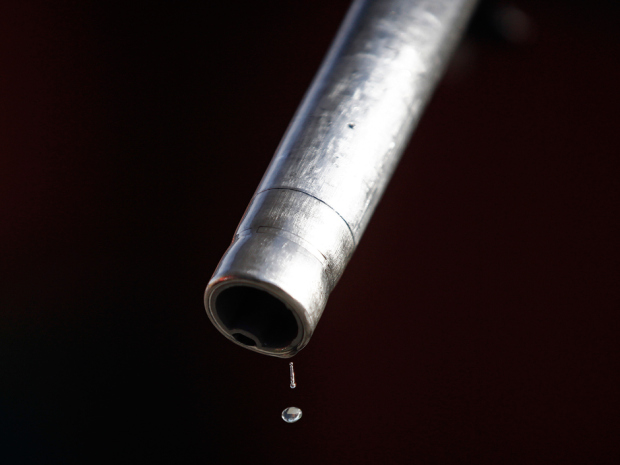Regardless of who wins the October 19 federal election, it’s increasingly clear that Canada’s days as a would-be energy super-power are over. Some of that has to do with oil’s price crash, but that was just the final straw, albeit a painful one. The resulting national economic pullback since the beginning of the year could be a taste of things to come until something else replaces the oil and gas industry as this country’s economic growth engine.
The political will to solve the oilpatch’s woes just isn’t there. During the election campaign, Conservative leader Stephen Harper was blamed for making a big bet on oil and gas at the expense of other industries and causing a recession in the process. He’ll be careful about going big on energy again if re-elected. Other politicians already are. Liberal leader Justin Trudeau and the NDP’s Tom Mulcair seem more concerned about erecting barriers, whether that’s tougher climate change legislation or more pipeline approval hurdles. Alberta Premier Rachel Notley, meanwhile, is only concerned with collecting oil rent to redistribute elsewhere.
The national will isn’t there, either. Parochial, environmental and Aboriginal groups opposed to building the infrastructure essential for oil and gas exports have drowned reasonable voices and are getting their way. The Canadian energy strategy produced by provincial premiers this summer is a measure of what politicians are willing to support: a mishmash of ideas to appease all interests, and not a single mention of the oil sands.
Frustrated investors have moved on. New technology has unlocked massive deposits of shale gas and tight oil (particularly in the United States) that are better suited to respond to increased pricing volatility than Canada’s expensive oil sands or liquefied-natural-gas projects that need everyone’s permission to get done. “The Canadian energy business has nowhere to go,” says Terry Shaunessy, president of Shaunessy Investment Counsel, a money management firm in Calgary that has moved all its investments outside the country. “What did we learn? That energy is not a particularly scarce resource; it’s actually everywhere.”
Another ominous sign: the brains and brawn that fuelled the energy growth story over the past decade have been decimated in this year’s big oilpatch layoffs.
None of this means the end of Canada as an oil and gas producer. But let’s face it: we may plateau as a mid-sized regional supplier dependent on the U.S. “The boom days by all indications are over, but at the same time, there is no reason to think that we can’t have steady, solid growth in the future, but that will involve getting a bit lucky on the (oil) price side, and at the same time getting smarter on the environmental side,” said Vincent Lauerman, director of energy and environment at the Conference Board of Canada.
But the next generation of oil sands projects has been put on hold, and there is rising pessimism that the delayed LNG projects on the West Coast will ever move ahead. Cheap and abundant oil has a way of dampening enthusiasm for all other energy sources. Energy investment dealer Peters & Co. predicted production from Alberta’s oil sands will rise to 2.75 million barrels a day by 2020 from 2.1 million barrels today. Beyond that, new projects are uncertain unless oil prices materially improve, and/or there is greater clarity around fiscal regimes (royalties, carbon costs, taxes), Peters said in a report.
Barring a catastrophic event in the Middle East that once again puts Canada’s stable oil in favour, Shaunessy predicts a transition period for the country’s economy while it figures out a Plan B — and that had better be more than “selling real estate to the Chinese.”





























Laissez un commentaire Votre adresse courriel ne sera pas publiée.
Veuillez vous connecter afin de laisser un commentaire.
Aucun commentaire trouvé